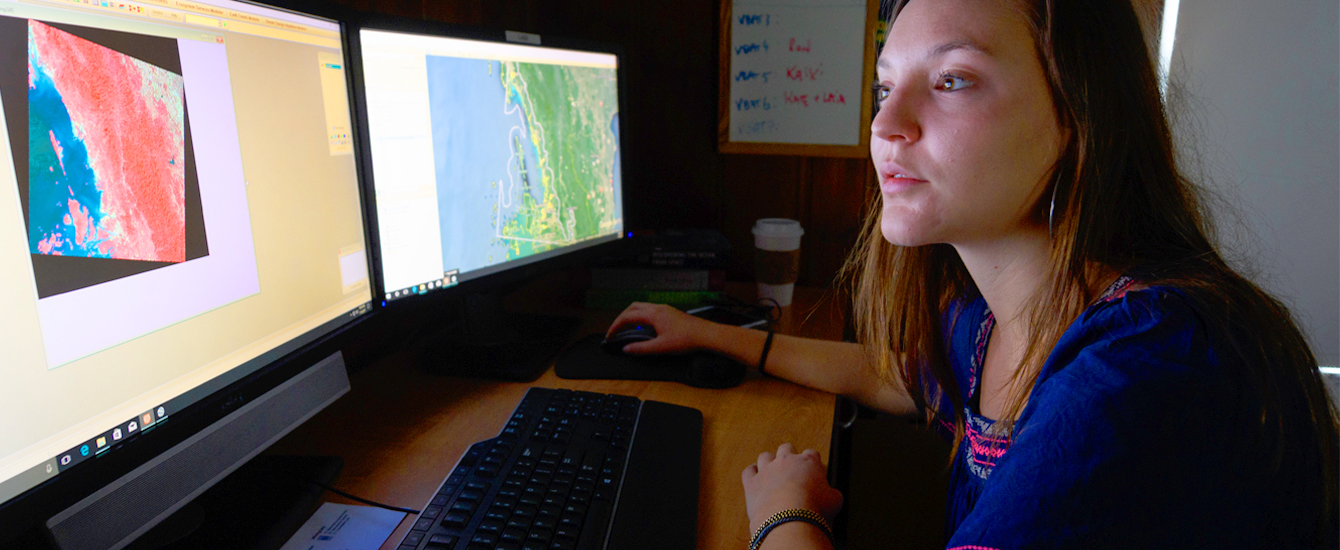Why study geography at Clark University? As an undergraduate student, you will have the opportunity to work with nationally and internationally known faculty to examine why places are different, how those differences shape how we live, and how we in turn shape our environment. In the end, you’ll graduate with a broad understanding of physical and human elements that comprise this field of study.
Those who excel in the program may consider applying to Clark’s Accelerated B.A./Master of Science in Geographic Information Science (GIScience).
Curriculum
To begin your major in geography, you’ll take one introductory level course (called a core course) in each of four broad areas of study:
- Earth System Science
- Human-Environment
- Urban Economic
- Geographic Information Science
Then you’ll focus more deeply on geography topics that interest you, enrolling in upper-level, in-depth courses called elective courses.
To develop and apply a variety of skills used in geographical work and research, you’ll take a skills course and a research methods course.
You will finish your degree by completing capstone credit requirements.
Learn more about the geography curriculum in our Program Guide for Undergraduate Geography Students:
Geography Major Requirements (11 Courses):
- 4 Core Courses
- 1 Skills Course
- 1 Research Methods Course (GEOG 141)
- 4 Elective Courses
- 1 Capstone Course/Credit
Geography Minor Requirements (7 Courses):
- 2 Core Courses
- 1 Skills Course
- 4 Elective Courses
Honors Thesis
During your junior year, you could be accepted into the geography honors program. You’ll choose a topic and work closely with a professor on an honors thesis.
Opportunities Beyond Classroom
Geography majors have multiple opportunities to gain knowledge, skills, and experience outside of the classroom. Learn more about opportunities for:

